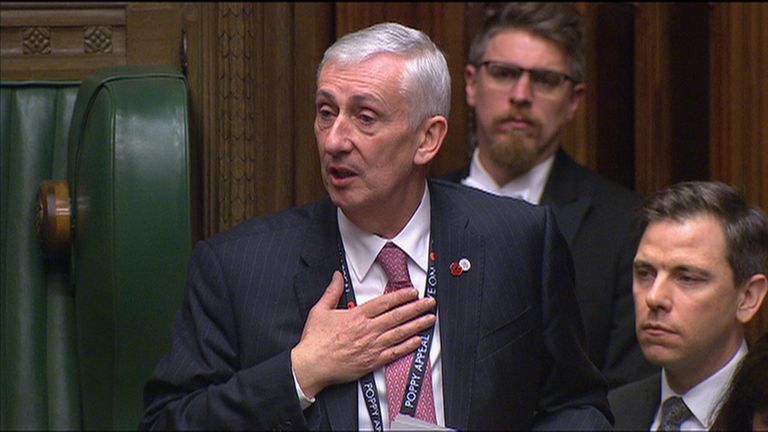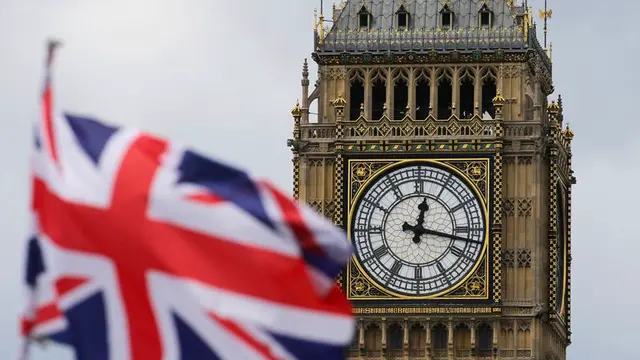Plans for a "virtual parliament" to let MPs quiz ministers during the coronavirus outbreak have been approved by authorities.
Breaking with nearly 700 years of tradition, around 120 MPs will be able to dial into Zoom calls to ask questions - with a further 50 permitted to sit in the chamber under "strict social distancing rules".
Commons Speaker Sir Lindsay Hoyle said the hybrid solution will let MPs "stay close to their communities" and continue "their important work scrutinising the government" during the
COVID-19
pandemic.

Image:Speaker Sir Lindsay urged people to 'stay home'
He explained he did not want MPs or the thousands of staff who work on the Westminster estate "putting themselves at risk" as the country remains in lockdown.
"By working virtually, this is our contribution to the guidance of stay home, protect the NHS and save lives," Sir Lindsay added.
The step will need to be formally approved by MPs themselves when recess ends on Tuesday 21 April.
When it is, those attending virtually will be allowed to take part in Prime Minister's Questions and any urgent questions or statements within the first two hours of proceedings starting.
They will not be allowed to display or draw attention to any objects to illustrate their remarks or make any interventions or points of order.
The Commons said it is up to MPs to decide if they want to change the rules on voting, which remain that each politician has to physically walk through one of two voting lobbies.
In a bid to assuage fears over the security of Zoom,
which staff at the Ministry of Defence were banned from using
, the National Cyber Security Centre has advised it thinks the video service's use is "appropriate" for public parliamentary business.
Parliament shut a week early for the Easter break because of the
coronavirus
outbreak, after emergency laws handing the government powers were rushed through.
Fears also grew about the spread of the virus when first a
junior health minister
, then the health secretary and **eventually the prime minister
** all contracted it.
More follows...
 简体中文
简体中文





